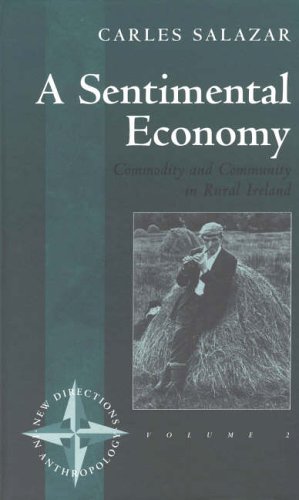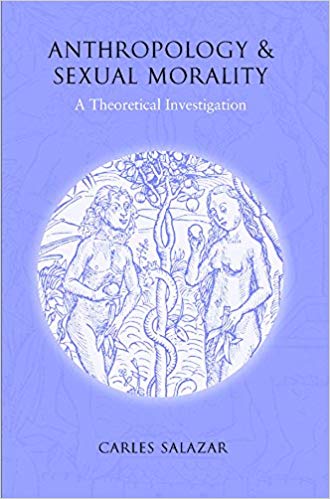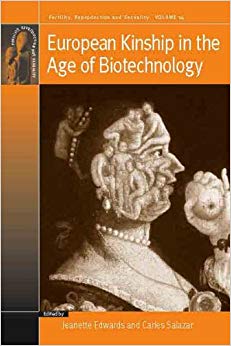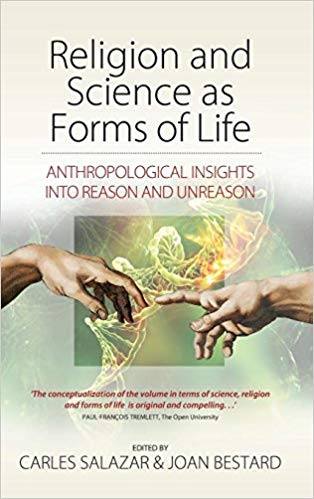Background
Carles Salazar was born on January 29, 1961, in Badalona, Catalonia, Spain. He is a son of Joan Salazar and Josefina (Carrasco) Salazar.

Gran Via de les Corts Catalanes, 585, 08007 Barcelona, Spain
Salazar graduated from the University of Barcelona in 1987.
The Old Schools, Trinity Ln, Cambridge CB2 1TN, United Kingdom
Salazar graduated from the University of Cambridge in 1988.
Plaça de Víctor Siurana, 1, 25003 Lleida, Spain
Salazar served at the University of Lleida from 1994.





(This book concentrates on a particular aspect of that rur...)
This book concentrates on a particular aspect of that rural economy: the social organization and cultural construction of work in a community of family farms.
http://www.amazon.com/gp/product/1571818871/?tag=2022091-20
1996

(Based on solid ethnographic and historical analysis of se...)
Based on solid ethnographic and historical analysis of sexual morality in rural Ireland, augmented by comparative data from Papua New Guinea, and being informed by from Freud’s emblematic concept of repression, the author draws new conclusions that not only apply to the specific case of his Irish material but shed new light on the specific nature of an anthropological approach to the study of human societies.
http://www.amazon.com/gp/product/1845450914/?tag=2022091-20
2006

(This volume investigates the impact of biotechnology on c...)
This volume investigates the impact of biotechnology on contemporary understandings of kinship, of family and ‘belonging’ in a variety of European settings and reveals similarities and differences in how kinship is conceived.
http://www.amazon.com/gp/product/1845455738/?tag=2022091-20
2009

(The purpose of this volume is to analyze the relationship...)
The purpose of this volume is to analyze the relationships, possible articulations and contradictions between religion and science as forms of life: ways of engaging human experience that originate in particular social and cultural formations.
http://www.amazon.com/gp/product/178238488X/?tag=2022091-20
2015

(Why are humans so different from each other and what make...)
Why are humans so different from each other and what makes the human species so different from all other living organisms? This introductory book provides a concise and accessible account of human diversity, of its causes and the ways in which anthropologists go about trying to make sense of it.
http://www.amazon.com/gp/product/0815356544/?tag=2022091-20
2018
Carles Salazar was born on January 29, 1961, in Badalona, Catalonia, Spain. He is a son of Joan Salazar and Josefina (Carrasco) Salazar.
Salazar was educated at the University of Barcelona, receiving his Bachelor of Laws degree in 1984, as well as Bachelor of Arts degree in History three years later. One more year later he graduated from the University of Cambridge as Master of Philosophy in Social Anthropology. Salazar finally earned Doctor of Philosophy degree in Social Anthropology from that university in 1993.
Salazar served at the University of Lleida at the position of a lecturer in social anthropology from 1994. He currently works a professor at that educational institution. Salazar held a post of a lecturer at the University of Barcelona for a year from 1994. Among his writings are books titled A Sentimental Economy and Explaining Human Diversity: Cultures, Minds, Evolution, in which he has explained why are humans so different from each other and what makes the human species so different from all other living organisms. In his writings, Salazar offers students a thoroughly integrated view by bringing together biological and sociocultural anthropology and including perspectives from evolutionary biology and psychology.
(Based on solid ethnographic and historical analysis of se...)
2006(Why are humans so different from each other and what make...)
2018(The purpose of this volume is to analyze the relationship...)
2015(This volume investigates the impact of biotechnology on c...)
2009(This book concentrates on a particular aspect of that rur...)
1996Salazar is a member of the European Association of Social Anthropologists and the Catalan Institute of Anthropology.
